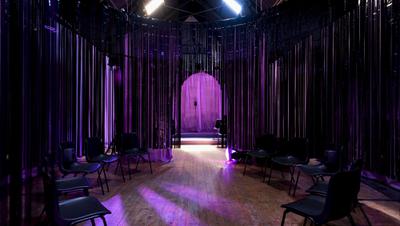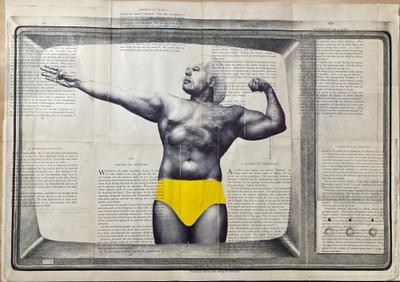News Story

The Decolonising Arts Institute at UAL has launched the second of 2 open calls for artists across the UK to apply for a national commissioning and network project.
The programme is bringing together 20 emerging or mid-career ethnically diverse artists who may identify as black, brown, or as people of colour, with 20 public art collections – leading to 20 new permanent acquisitions in museums and galleries across the UK.
The 20/20 project, funded by Arts Council England’s National Lottery Project Grants programme, Freelands Foundation and UAL, is a 3-year programme to catalyse artists’ careers and meaningful change in collections. It is a response to the resurgent Black Lives Matter movement and its implications for the arts and cultural sectors, sparking debates around national monuments, collections, and their colonial legacies.
Successful applicants will be commissioned to research, develop and produce a creative work that engages with their host collection partner. They will undertake a 15-month residency, facilitated by UAL, which explores and responds to the collection’s history and holdings.
20/20 will address the often problematic and negative ways in which diverse audiences see themselves reflected in these spaces. Artists will be supported to develop their practices, whilst host institutions will be urged to confront how colonial histories and legacies influence collections and marginalise audiences.
20/20 will host a public programme, including an online digital exhibition at the end of each round of residencies, hosted by UAL. These exhibitions will showcase the residency projects and may feature work across diverse media, including digital native work.
The 20/20 programme will culminate in a symposium and e-publication featuring 20 original short essays commissioned in response to the residencies. This will bring artists, curators, and writers into dialogue with local, regional, national, and international audiences.
Each collection partner will also receive a portfolio of 20/20 prints. This means that artists who may have little or no visibility in collections to date, will find their work in 20 public collections across the UK – impacting artists, audiences and the collections themselves.
The second call for artists is open from 6 January 2023 – 6 February 2023.
Artists can find out more about 20/20 and apply via the Call for Artists page on the UAL website.

Victoria Osborne, Curator (Fine Art) and Curatorial Team Leader at Birmingham Museums Trust:
"We’re really excited to be part of the 20/20 project which comes as Birmingham Museums Trust continues a multi-year transformation under the leadership of co-CEOs, Sara Wajid and Zak Mensah. Hope, trust and social belonging will be at the heart of what we do, with audiences and communities playing a leading role in shaping BMT through consultation, collaboration and co-production.
"With our aim of mass participation and consultation at its heart, the 20/20 commission will be developed through the artist’s own practice, informed by digital and in-person engagement with communities in the city. We would especially value the opportunity to host an artist from Birmingham or the wider West Midlands, and definitely someone who would be passionate about collaborating with the people of Birmingham.
"We’re looking forward to welcoming an artist to work with us and with the people of Birmingham, using the collections in our care for inspiration."
20/20 collection partners
Birmingham Museums Trust; The Box, Plymouth; Bradford District Museums and Galleries; Bristol Museum & Art Gallery; Compton Verney, Warwickshire; Harris Museum, Preston; The Hepworth Wakefield; Herbert Art Gallery & Museum, Coventry; Kelvingrove Art Gallery & Museum, Glasgow; Kettle's Yard, Cambridge; Leeds Art Gallery; The Lightbox, Woking; Manchester Art Gallery; MIMA (Middlesbrough Museum of Modern Art); National Disability Arts Collection & Archive (NDACA); National Museums NI (Ulster Museum); Pallant House Gallery, Chichester; Sheffield Museums Trust; Walker Art Gallery, National Museums Liverpool; Wolverhampton Art Gallery.


